1. Traffic Management
AI is transforming traffic management by optimizing the flow of vehicles and reducing congestion. Smart traffic lights powered by AI can adjust signal timing in real time to match traffic conditions, minimizing idle time and stop-and-go waves. Cities are using machine learning to analyze traffic patterns and coordinate multiple intersections, leading to smoother commutes and lower vehicle emissions. AI also assists in predicting traffic incidents or surges, allowing quicker responses such as rerouting or adjusting public transit schedules. Overall, incorporating AI into traffic systems improves travel efficiency, cuts fuel waste, and enhances road safety through more responsive control of traffic signals and routing systems.
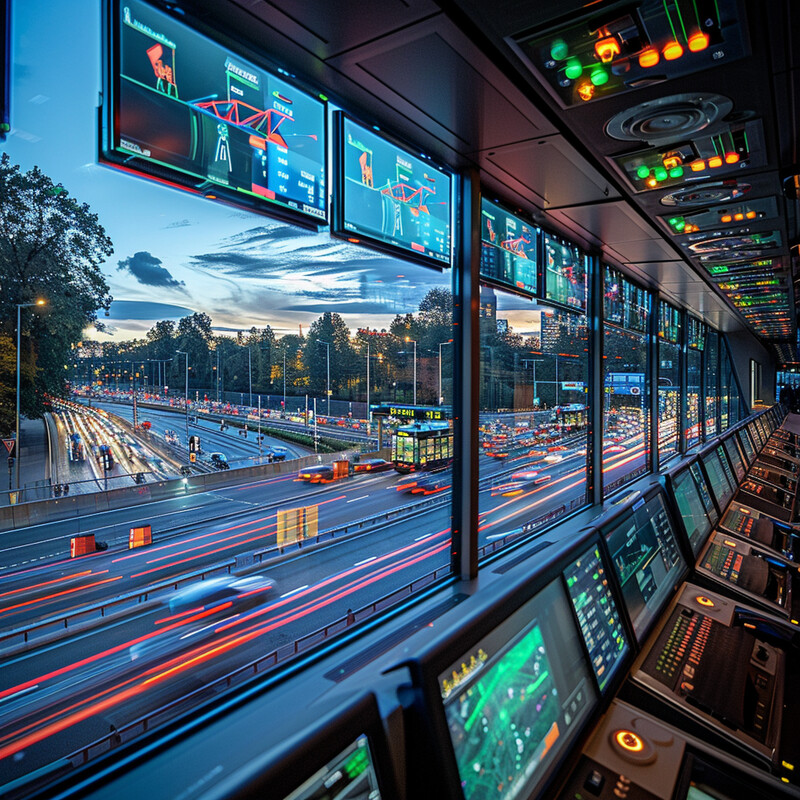
A recent large-scale study highlighted these benefits: In a 2025 analysis of 100 highly congested cities, AI-driven adaptive traffic signal control reduced peak-hour trip times by about 11% and off-peak travel times by 8%, which in turn curbed an estimated 31.7 million tonnes of CO2 emissions annually. The same study found that the societal benefits of AI-optimized traffic – including saved time, fuel, and emissions – outweighed implementation costs by a factor of more than 20, underscoring the significant impact of AI on urban mobility and sustainability.
2. Public Safety
In public safety, AI tools are being deployed to help law enforcement and emergency services respond more effectively and proactively. Intelligent surveillance systems with AI can detect unusual activities or weapons in real time, enabling faster police interventions. Predictive algorithms analyze crime data to identify patterns and hotspots, helping departments allocate patrols more efficiently. AI-driven dispatch systems prioritize emergency calls and suggest optimal routes for first responders, potentially saving crucial minutes. Additionally, AI assists in digital forensics and identity recognition, processing vast amounts of footage or evidence far quicker than human analysts. While ethical considerations remain important, AI’s data-crunching and pattern-recognition capabilities are proving valuable in preventing crime and improving response times.
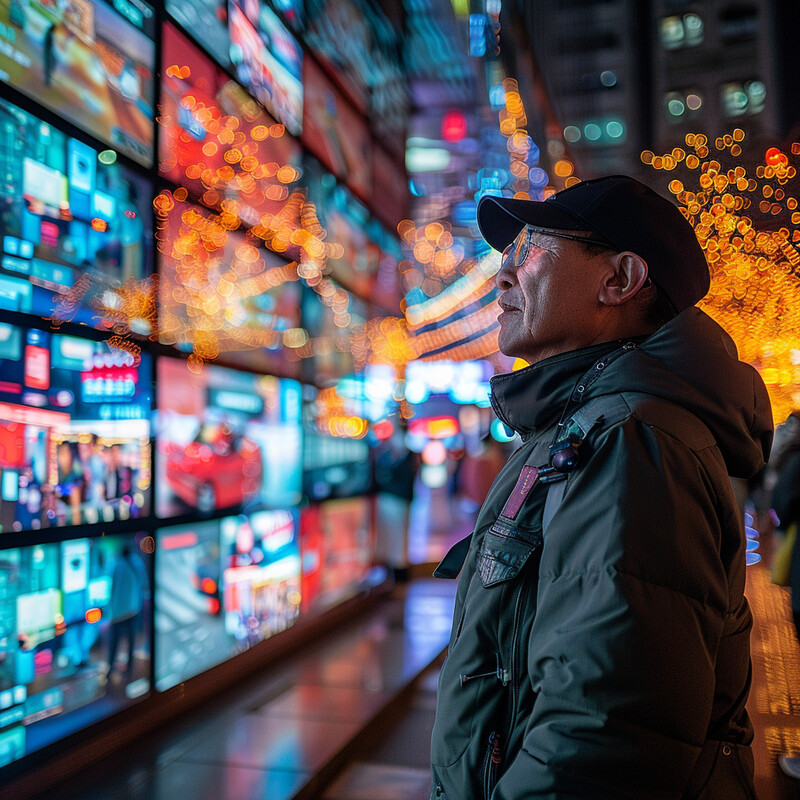
The integration of AI has shown tangible crime reduction results in cities. For example, a pilot program in Georgia in 2023 used an AI algorithm to guide the placement of mobile surveillance cameras based on historical crime data; as a result, the targeted areas saw a 20% drop in reported crime after deployment. More broadly, national surveys of U.S. law enforcement indicate overwhelming support for AI – in one 2024 poll, 90% of officers backed the use of AI in their agencies, expecting it to improve efficiency and help reduce crime rates (Mark43, 2024). These outcomes and sentiments reflect AI’s growing role in enhancing public safety through smarter resource use and early detection of threats.
3. Waste Management
AI is improving waste management by making collection and recycling processes more efficient and sustainable. Cities are using AI and IoT sensors in “smart bins” to monitor fill levels and optimize garbage truck routes, which reduces fuel consumption and ensures timely pickups. Machine learning algorithms also power robotic sorting systems in recycling facilities, automatically identifying and separating materials (like plastics, paper, and metals) with high accuracy, which increases recycling rates and reduces contamination. Predictive models help sanitation departments anticipate waste generation patterns (for instance, more waste after public events) and allocate resources accordingly. By improving route logistics and automating sorting, AI not only lowers operational costs (less driving distance and labor) but also diverts more waste from landfills, contributing to environmental sustainability. Overall, AI enables a more data-driven and responsive approach to keeping cities clean.

Research demonstrates substantial efficiency gains from AI in waste management. A 2023 scientific review found that using AI for waste collection logistics can cut the distance that garbage trucks need to drive by up to 36.8%, leading to about 13.3% savings in related costs and nearly 28% time savings for collection crews. In recycling operations, AI-based vision systems now achieve material sorting accuracies as high as 95–99%, far better than manual methods. These improvements mean cities can collect and process waste more quickly and cheaply, while recovering more recyclable material – a clear win for both budgets and the environment.
4. Energy Management
AI plays a pivotal role in optimizing urban energy use and supporting the transition to cleaner power. Smart grids use AI algorithms to balance electricity supply and demand in real time, integrating renewable sources (like solar and wind) more efficiently and reducing the need for polluting backup power plants. In buildings, AI-driven energy management systems learn usage patterns and adjust heating, cooling, and lighting automatically – cutting energy waste without sacrificing comfort. AI also helps predict equipment failures in power networks and large facilities (predictive maintenance), allowing repairs before outages occur and improving reliability. On a city-wide scale, AI models analyze huge datasets (weather, consumption, etc.) to forecast energy demand peaks, helping utilities distribute load and prevent blackouts. By enhancing efficiency at both the consumer and grid level, AI contributes to lower energy costs and reduced greenhouse gas emissions in cities.
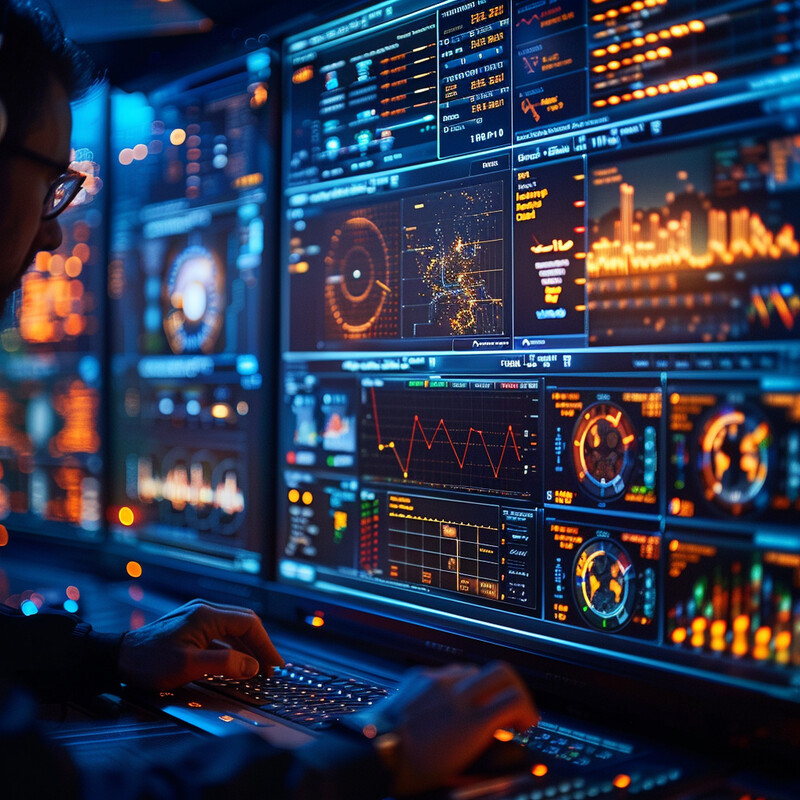
Modeling studies highlight AI’s potential to substantially improve urban energy efficiency. In a 2024 peer-reviewed study focusing on U.S. commercial buildings, researchers projected that adopting AI for building operations and climate control could cut overall energy consumption and associated emissions by roughly 8–19% by the year 2050. Furthermore, if AI optimizations are combined with supportive energy policies and increased renewable power, cities might reduce building energy usage by up to 40% and carbon emissions by as much as 90% compared to business-as-usual scenarios. Early real-world deployments echo these findings: for instance, AI-driven control systems in large office buildings have yielded double-digit percentage reductions in electricity usage through smarter HVAC and lighting management. These statistics illustrate AI’s significant promise in trimming energy waste and accelerating progress toward urban sustainability goals.
5. Water Management
AI is increasingly used in water management to secure urban water supplies and reduce wastage. Smart water networks employ AI algorithms to detect leaks in pipelines by analyzing pressure and flow data in real time – often catching hidden underground leaks long before they surface. This early detection allows utilities to fix problems sooner, saving millions of gallons of water. AI-based forecasting models help city water departments predict demand spikes (for example, on unusually hot days) so they can manage reservoir levels and pumping schedules more efficiently. In wastewater treatment, AI systems optimize processing of sewage and help monitor water quality by quickly interpreting sensor data for contaminants. AI is also applied in flood management: machine learning can integrate weather forecasts and sensor readings to provide early flood warnings and guide proactive measures. By making water infrastructure “smarter,” AI helps cities conserve water, reduce operating costs, and protect communities from water-related hazards.
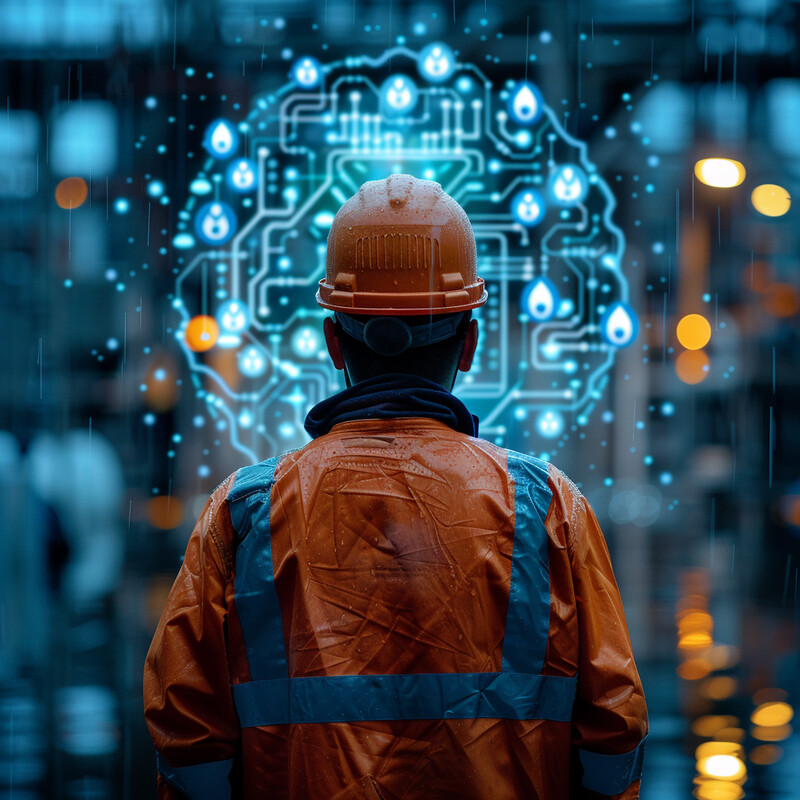
Cities that have adopted AI for leak detection and network monitoring report significant reductions in water loss. As an illustration, Southern Water in the UK deployed thousands of acoustic sensors coupled with AI analytics across its distribution network; between April 2024 and April 2025, this high-tech approach helped cut the utility’s weekly leakage by over 15% – from about 108 million liters per day down to 91 million liters – effectively saving 17 million liters of water every single day. That volume is enough to supply roughly 35,000 customers daily. This achievement, the largest leak reduction in Southern Water’s history, underscores how AI and smart sensors can substantially improve the efficiency of urban water systems and preserve a vital resource.
6. Infrastructure Maintenance
AI is helping cities maintain critical infrastructure – such as roads, bridges, and utilities – more proactively and cost-effectively. By analyzing data from sensors and inspection cameras, AI systems can identify early signs of wear or damage (for example, cracks in bridges or potholes forming in streets) before they worsen. This enables targeted repairs and avoids more expensive fixes after failures. Some city public works departments are equipping maintenance vehicles with AI-enabled cameras to automatically detect issues like road cracks, broken streetlights, or illegal dumping, creating repair tickets without waiting for citizen reports. Drones with AI image analysis are also used for inspecting hard-to-reach structures (bridges, tall buildings), reducing the need for dangerous manual inspections. Overall, AI allows a shift from reactive maintenance to predictive maintenance – fixing problems just in time – which extends the lifespan of infrastructure and improves safety by reducing incidents like sudden road sinkholes or bridge closures.
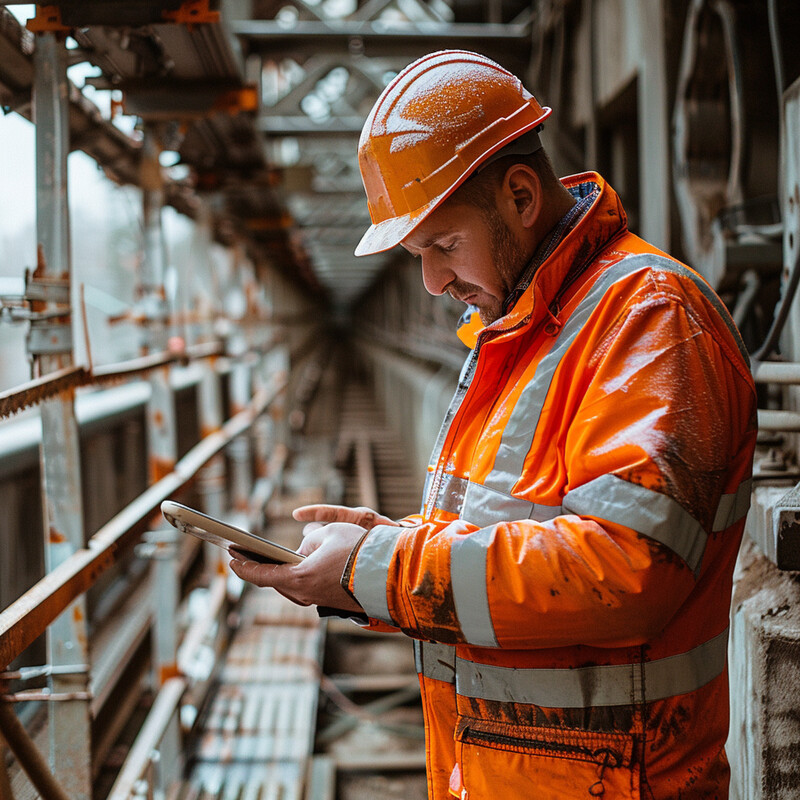
Early adopters of AI in infrastructure upkeep have seen promising results in efficiency. In Memphis, Tennessee, a pilot program in 2024 mounted AI-powered cameras on city trucks to automatically scan roads and sidewalks for problems. The AI model achieved about 90% accuracy in detecting issues such as potholes, clogged storm drains, and overgrown lots, and it automatically generated work orders for repair crews when it found defects. By comparison, when the system first started it was only ~60% accurate, but it quickly learned and improved to the 90% range through iterative training. This high accuracy means city staff can trust the AI to reliably flag infrastructure issues, allowing them to fix more problems faster. Memphis officials have reported that such AI-driven monitoring has accelerated their response times and could potentially reduce inspection costs, illustrating how AI makes urban maintenance more proactive and data-driven.
7. Urban Planning
AI is becoming a valuable tool in urban planning by helping cities analyze complex datasets and make more informed development decisions. City planners use AI-driven simulations and “digital twins” (virtual city models) to test how changes – like a new transit line or zoning change – might affect traffic, pollution, or neighborhood dynamics before implementation. Machine learning can also synthesize public input and socioeconomic data to identify where to build schools, parks, or affordable housing for maximum benefit. In the realm of permitting and code compliance, AI is streamlining processes: some cities have AI software that can check building plans for code violations, speeding up the permit approval process for construction. Additionally, AI helps optimize land use by crunching numbers on growth trends and infrastructure capacity, suggesting smarter long-term plans. By handling heavy data analysis and even automating routine tasks (like initial permit reviews), AI frees urban planners to focus on creative solutions and ensures urban growth is managed more efficiently and transparently.
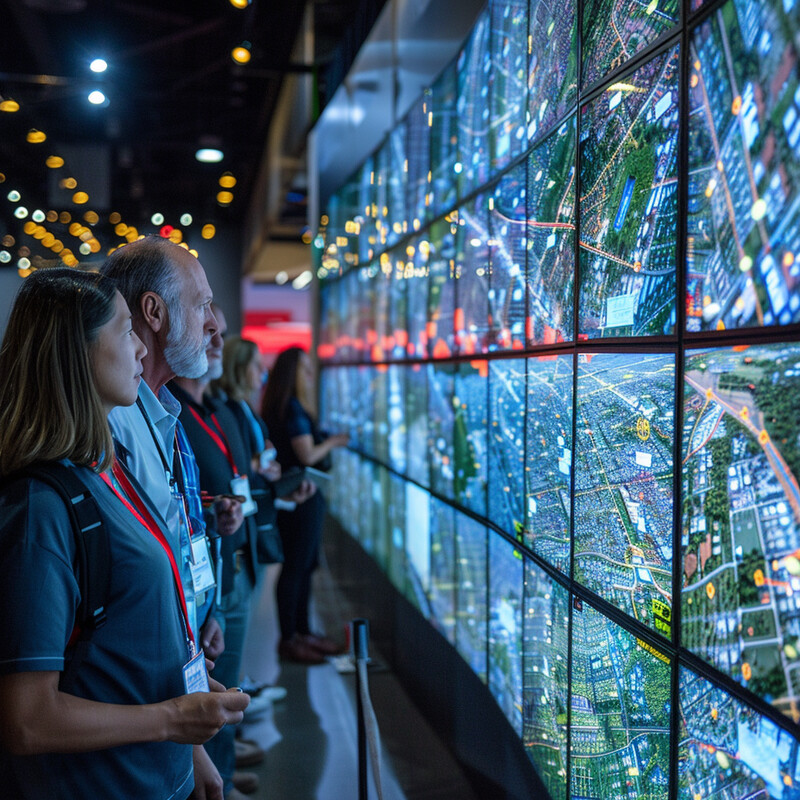
One dramatic example of AI improving urban planning processes comes from Honolulu’s city permitting department. In 2024, Honolulu piloted an AI-based plan review system (called “CivCheck”) to address its notoriously long building permit backlogs. The result was a 70% reduction in the time required for residential code compliance reviews and a 40% reduction in stormwater plan review time for new permits. By catching code issues automatically, the AI significantly accelerated approvals – a building permit process that previously took many months was substantially shortened. This success has led Honolulu to expand the use of AI in its development services. Other cities are now looking to similar AI solutions to speed up permitting and make planning departments more responsive, as delays and bottlenecks in these processes can stifle economic development and frustrate residents.
8. Environmental Monitoring
AI enhances a city’s ability to monitor and protect its environment by processing data from sensors, satellites, and cameras far faster than humanly possible. For air quality, AI models analyze streams of pollution sensor data and weather information to provide high-resolution pollution maps and predict smog events, so authorities can issue health advisories or adjust traffic flows. In terms of climate risks, AI-powered early warning systems help detect natural hazards like wildfires or floods sooner – for instance, by spotting smoke in camera images or by modeling rainfall patterns to predict flash flooding in specific neighborhoods. Cities also deploy AI in waste and water monitoring; for example, computer vision can detect illegal dumping or identify when rivers are polluted via drone imagery. By continuously watching environmental indicators and learning from historical patterns, AI systems enable quicker responses to issues such as poor air days, water contamination, or impending disasters. This proactive monitoring is crucial for urban resilience and public health in the face of climate change and urbanization.
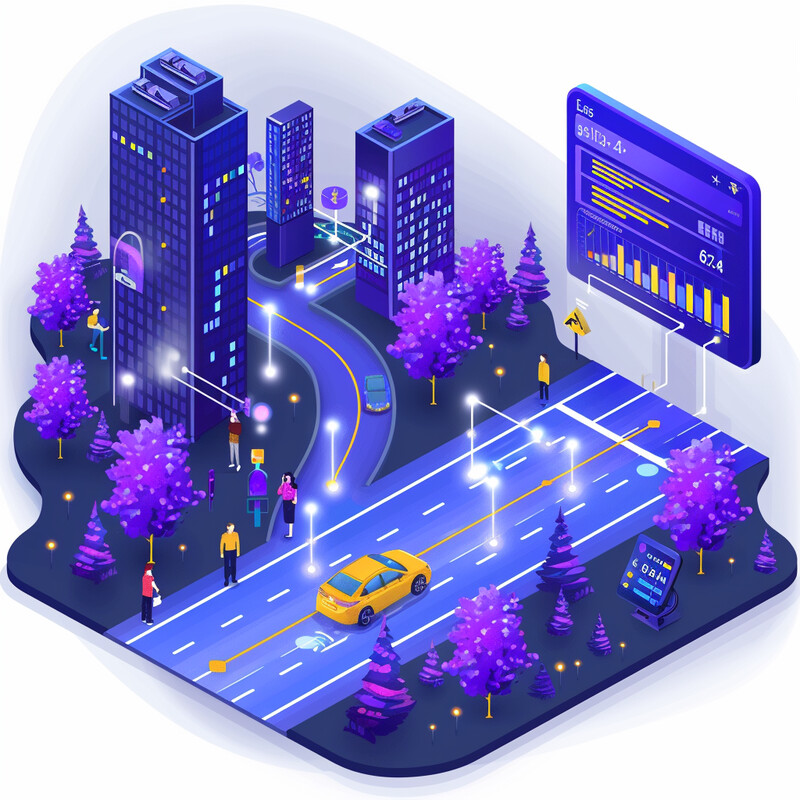
One of the clearest demonstrations of AI’s environmental monitoring power is in wildfire detection. California has implemented an AI system that watches feeds from over 1,000 mountain-top cameras across the state to spot wildfires the moment they ignite. Within the first two months of deployment, the AI “digital lookout” correctly identified 77 wildfire starts before any 911 calls were made. These early detections by AI allowed fire crews to respond faster and contain fires when they were still small, potentially preventing catastrophic spread. Recognizing this success, TIME Magazine named California’s wildfire AI system one of the Best Inventions of 2023. Likewise, other environmental AI applications – from flood prediction in Spain (where an AI early-warning project aims to protect 700,000 residents from flooding) to AI-driven air quality forecasting in London – are yielding concrete benefits by alerting officials and the public to environmental risks much sooner than traditional methods.
9. Citizen Engagement
AI is improving citizen engagement by making it easier for residents to interact with city services and by giving governments better insights into community needs. Many city websites and 311 service lines now use AI-powered chatbots that can handle common questions or service requests 24/7 in multiple languages – residents get quick answers or can report issues without waiting for a human operator. AI is also used to analyze citizen feedback from surveys or social media; by scanning for patterns in complaints or suggestions, city officials can identify what issues are most important or which neighborhoods need more attention. Some cities deploy AI in participatory budgeting or urban planning forums, using algorithms to ensure a wider range of voices are heard (for instance, by clustering similar ideas or highlighting under-represented opinions). Personalization is another aspect: AI can tailor city apps or alerts to individual preferences, so people receive the information relevant to them (like trash pickup reminders or nearby community events). Through these means, AI helps create a more responsive and inclusive dialogue between city governments and residents.

A global study in 2025 underscores how widely cities are turning to AI to boost civic operations and, by extension, citizen engagement. In a survey of 250 cities worldwide, 56% of city governments reported they are already actively using some form of AI to upgrade their services and operations, and 83% plan to do so within the next three years. Cities are applying AI across various domains – from transportation and infrastructure to health and public safety – and are observing benefits such as greater cost efficiency, faster service delivery, and improved resident satisfaction. For example, many cities noted that AI chatbots and digital assistants have expanded access to city services after hours and helped answer tens of thousands of citizen inquiries with relatively little human intervention. These findings indicate that AI is becoming a mainstream tool for city halls, with the potential to make government more accessible and attuned to the public’s needs.
10. Healthcare Services
In smart cities, AI contributes to healthcare services by enhancing diagnostics, streamlining hospital operations, and improving public health monitoring. Hospitals are using AI-driven tools to assist doctors in reading medical images like X-rays or MRIs – often AI can flag abnormalities (such as tumors or fractures) that might be subtle, leading to earlier and more accurate diagnoses. AI scheduling systems manage appointments and staffing, reducing patient wait times and optimizing the use of medical resources (like operating rooms or specialists’ schedules). Cities also apply AI for community health analyses: mining data from clinics, social services, and even wastewater (for disease biomarkers) to predict outbreaks or identify neighborhoods in need of health interventions. In emergency response, AI aids ambulance services by predicting call volumes and optimizing dispatch, which can cut response times. By automating routine tasks and uncovering patterns in health data, AI allows healthcare providers to focus more on patient care and preventive measures, making urban healthcare more efficient and proactive.
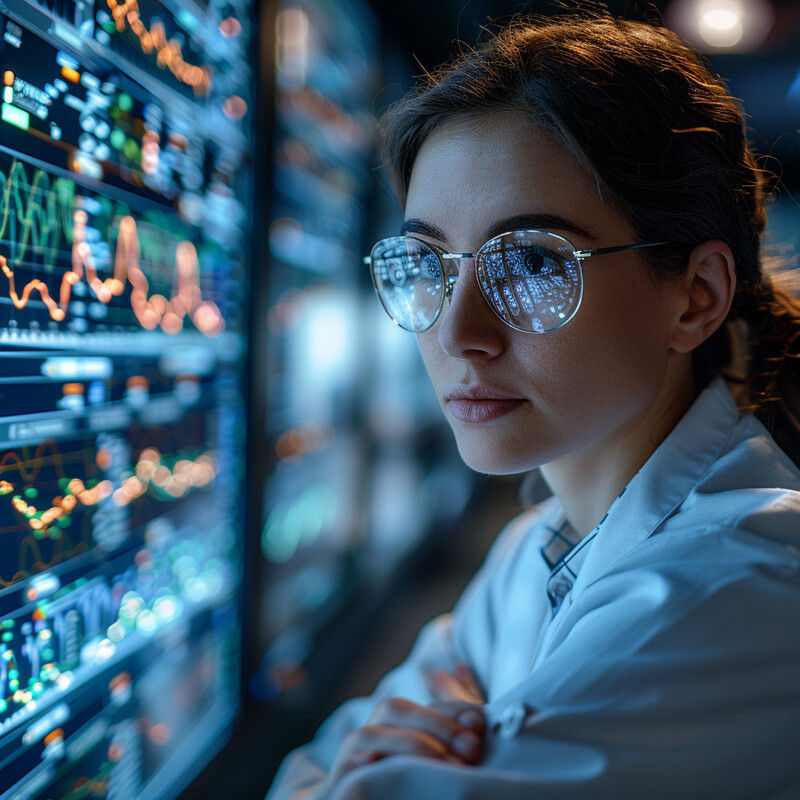
Concrete improvements have been documented where AI is integrated into healthcare delivery. For instance, a large children’s hospital in Shanghai implemented an AI-assisted triage and diagnostic system (nicknamed “Xiao Yi”) to speed up the outpatient process. In a published 2021 study, the hospital reported that median waiting time from patient registration to initial examination dropped from about 1.97 hours under the old process to just 0.38 hours with the AI-assisted system in place – roughly an 80% reduction in wait time (Li et al., 2021). This AI system automatically gathered patient symptoms and ordered preliminary tests before the patient even saw the doctor, dramatically shortening the overall visit. Additionally, the same study noted a slight reduction in costs for patients in the AI group due to more efficient testing. Across other healthcare settings, AI tools have similarly helped reduce appointment no-show rates, optimize staffing to match patient flow, and even increase the detection rate of certain diseases (like screening programs catching more early-stage cancers). These outcomes illustrate AI’s powerful role in delivering faster and potentially better healthcare services in urban environments.